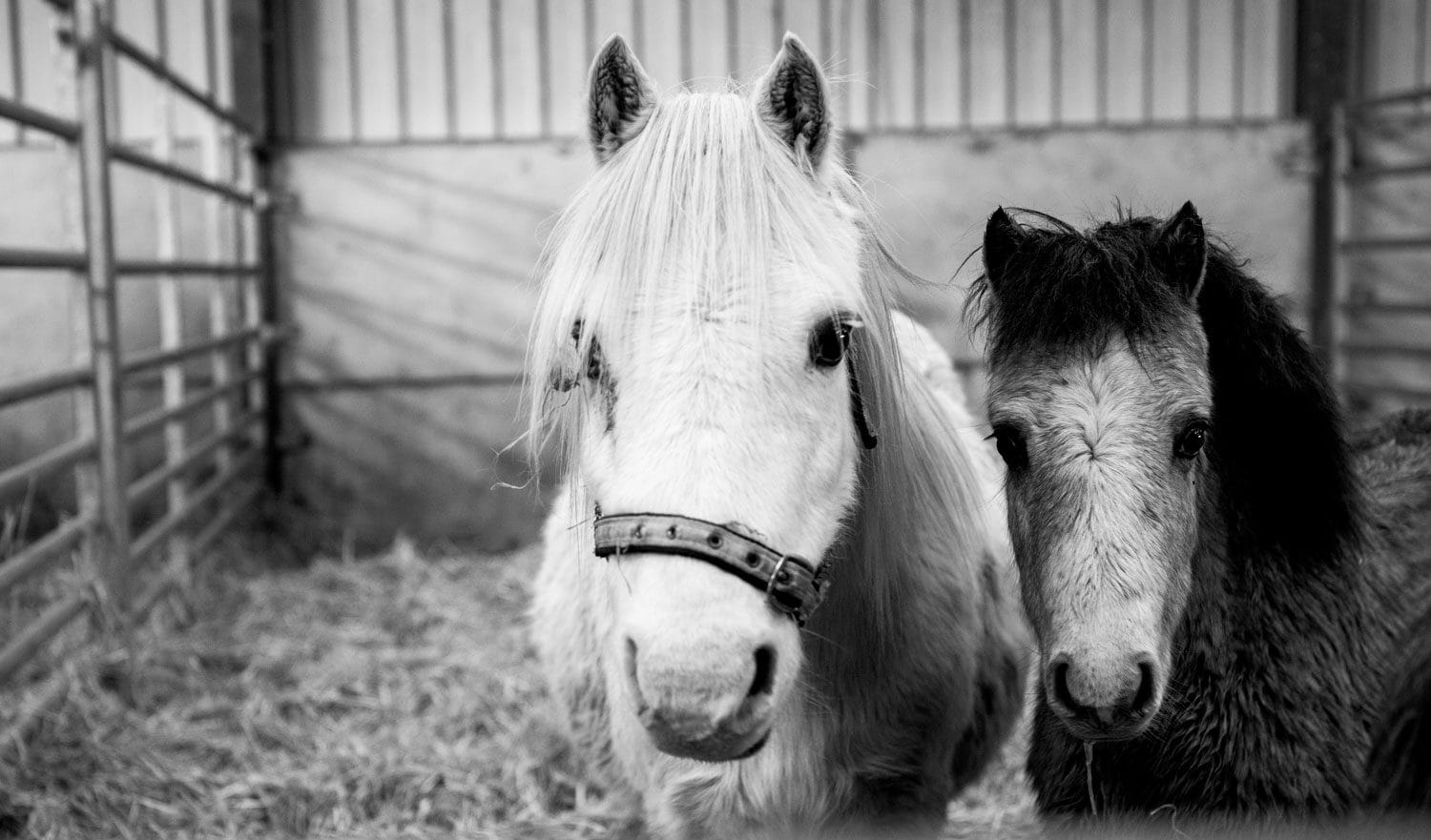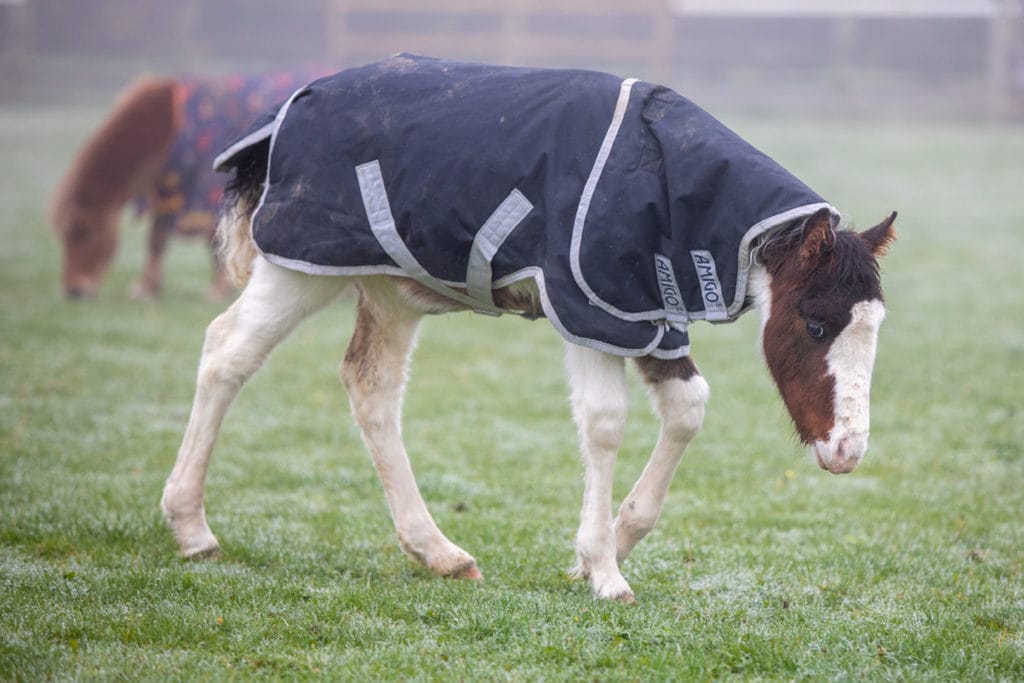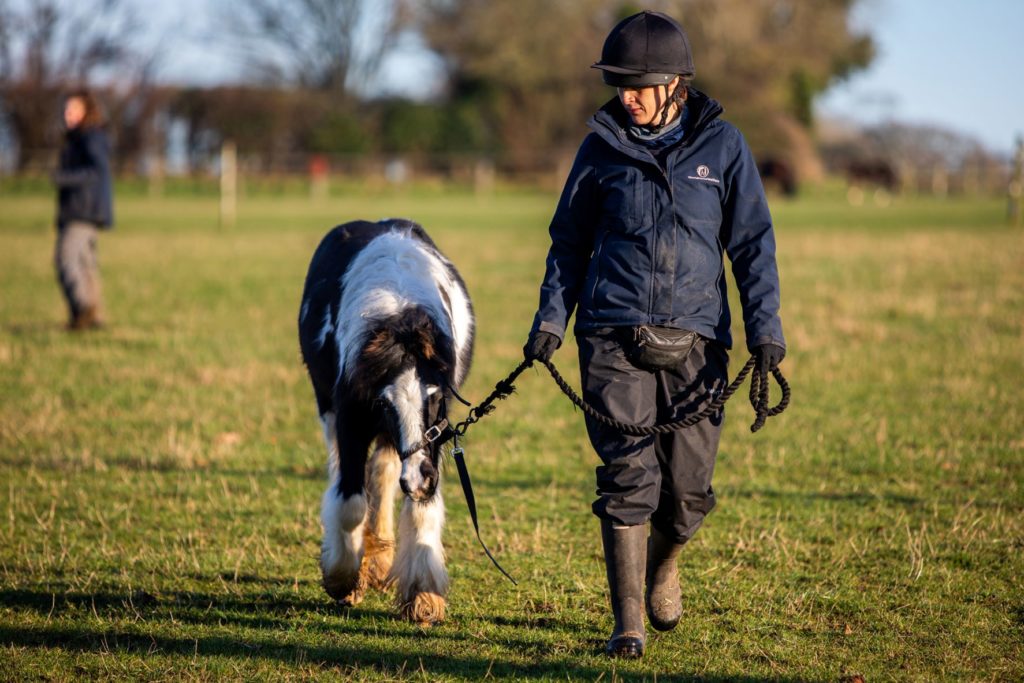Why horses need you

Together for Animals member World Horse Welfare rescues, rehabilitates, and rehomes more than 300 horses in the UK each year. Every year their Field Officers visit around 1,500 reported welfare concerns, and on average 300-350 horses are taken into their care each year.
World Horse Welfare’s Chief Field Officer Claire Gordon explains how horses and ponies can come into their care for all kinds of reasons and from all kinds of situations.
“When we go out to visit a situation, we never know quite what we’re going to find when we get there, regardless of who has contacted us about it. Sometimes, once we’re equipped with all the facts, we discover that the help that people, and their horses, really need is for us to take the horse in because life has thrown a curve ball that they didn’t see coming. This can happen after their health, finances, or living arrangements fail – and, sadly, it’s often all three by the time we get called.
“Sometimes owners have been struggling on for months, or even years, desperately trying to make things work, before finally realising that they can’t cope. The prospect of giving up on their horses is often too much to comprehend – something we, as horse lovers ourselves, can completely understand. We frequently find that the horses are sometimes the only pleasure or solace their owners have – and who would want to lose their beloved horses, or have them taken away, especially if you’re struggling in other areas of your life?

“We try to support owners in these difficult times they’re encountering. We help them work out what is possible for them to achieve a positive outcome – and that’s different for everyone. I think all my fellow Field Officers would agree that every situation we come across is unique. Some cases require us to move heaven and earth to bring the horses in that day, whether to a holding yard or one of our centres, because there’s no doubt the horses are suffering and need expert treatment urgently, as confirmed by a vet. However, in situations where we can see the possibility to achieve satisfactory improvements to the horses’ wellbeing, we try to work with the owner at their pace to get the right outcome for them as well as the horses.
“Sometimes we can clearly see that simply reducing the number of horses on site considerably will solve the problem and make the situation manageable for an owner who clearly loves their horses but has simply become overwhelmed with the number over time. I’ve helped people on numerous occasions to reduce their herd to manageable numbers that their finances can support comfortably.
“The support we provide to ensure horses get the care they need can take a number of forms. We’ve helped to find local people who can assist with the daily care of horses while we support the owner and their family to create a succession plan. We will also provide practical, hands-on support by organising vet care or farrier appointments, and will be there to hold the horses for the professionals. We can provide rugs when needed, from donated supplies. Thanks to the support of Westgate Laboratories, we can use their faecal worm egg count postal service to determine if a horse has a parasite burden that needs addressing.
“Our expertise and, when necessary, equipment enable us to catch a lot of previously uncatchable horses for people so the horses can get the treatment they need. We can help to get equines identified correctly, i.e. passported and microchipped. It is not uncommon for a Field Officer to take steps to ensure that a vulnerable owner will get something to eat that night while we try to help their horses.

“You might think that being a Field Officer for an equine welfare charity means you spend all day dealing with horses in need of help but working with people is a huge part of the job too. In fact, this aspect of the role requires equally specialist skills, and in the last few years all our Field Officers have undergone training in Motivational Interviewing (MI). MI is an approach to behaviour change which enables our Field Officers to have purposeful conversations which spark positive change. Using MI, we can support people to feel motivated and empowered to come up with their own solutions to the difficulties that they may be facing with their horses’ care. We have also recently undertaken a Mental Health First Aid course so we can better recognise horse owners who are struggling and ensure we signpost them to appropriate, expert help. By supporting them to improve their own health and circumstances, they are then better placed to care for their horses in turn.
“One really powerful story which sticks in my mind is a lady I came across a few years ago who had been unable to care for her horses after a period of mental ill health. Horses were her whole world, and she was devastated because she felt she had let her beloved horses down. Her anxiety levels were sky-high worrying about them, which took a further toll on her wellbeing. As a charity we were able, with her consent, to get the vet and farrier out to check her horses and ensure their care in the short term. Practical help was clearly needed too, so I brought a team of Field Officers together. Between us we made the fields safe, while giving the owner the space to decide if parting with the horses was right for her.
“The owner ultimately decided she needed the horses in her life and so we helped to find someone trustworthy that she could pay to care for her horses. This enabled the owner to focus on her own health and finding the support she needed to do that. With some help, the lady was able to return to caring for her horses herself a little over a year later. Today she and her horses are thriving – and I fear that would not have been the case without the lady having her horses to live for. I often think of her now and it always reminds me to keep an open mind about every situation I deal with, and to work with the owners where possible to help ensure the right outcome for all.”


